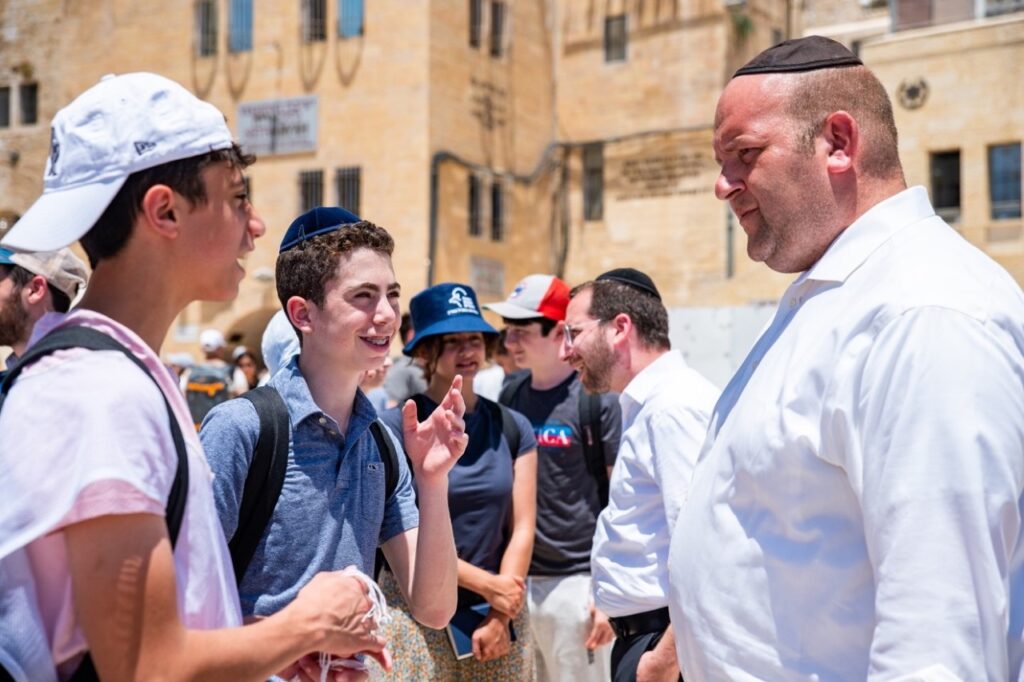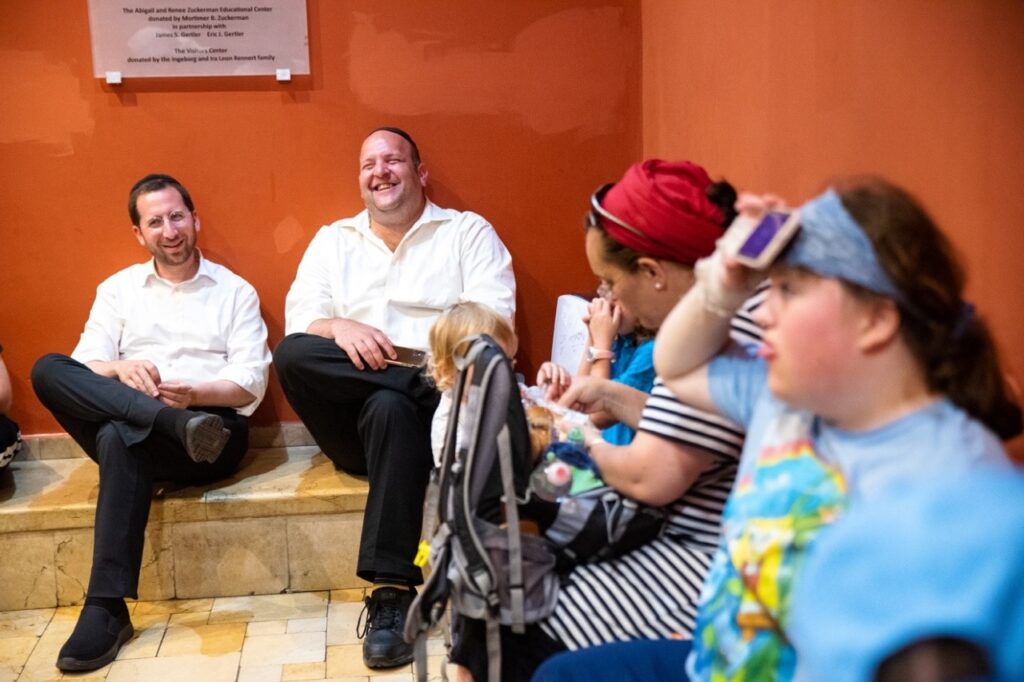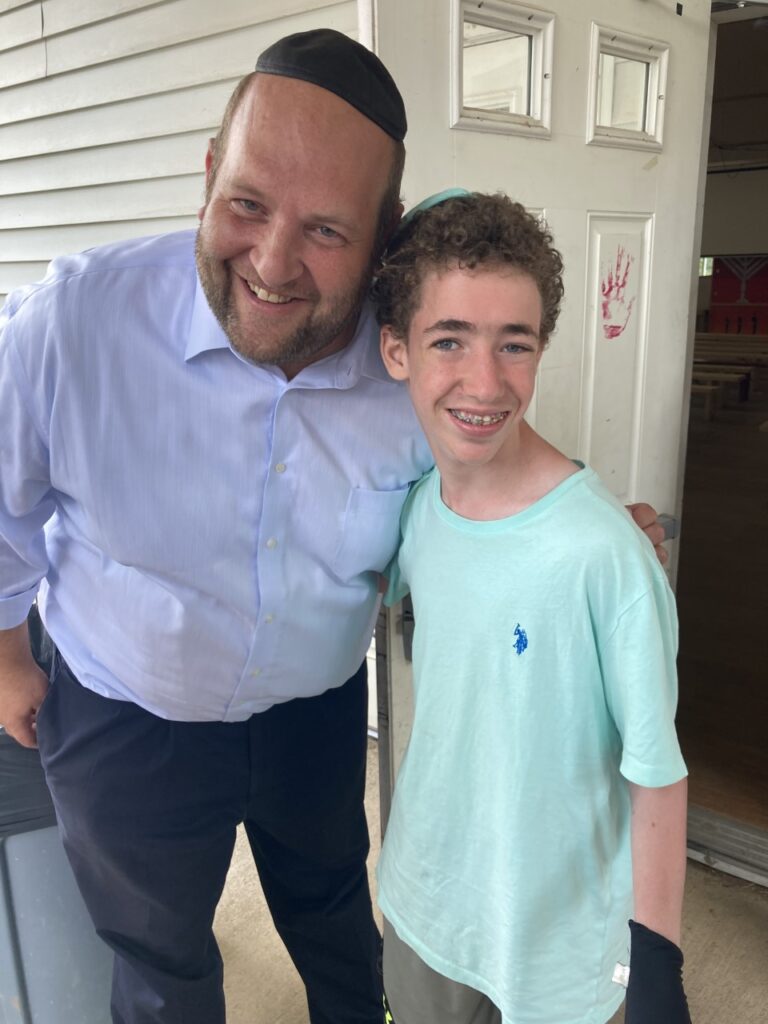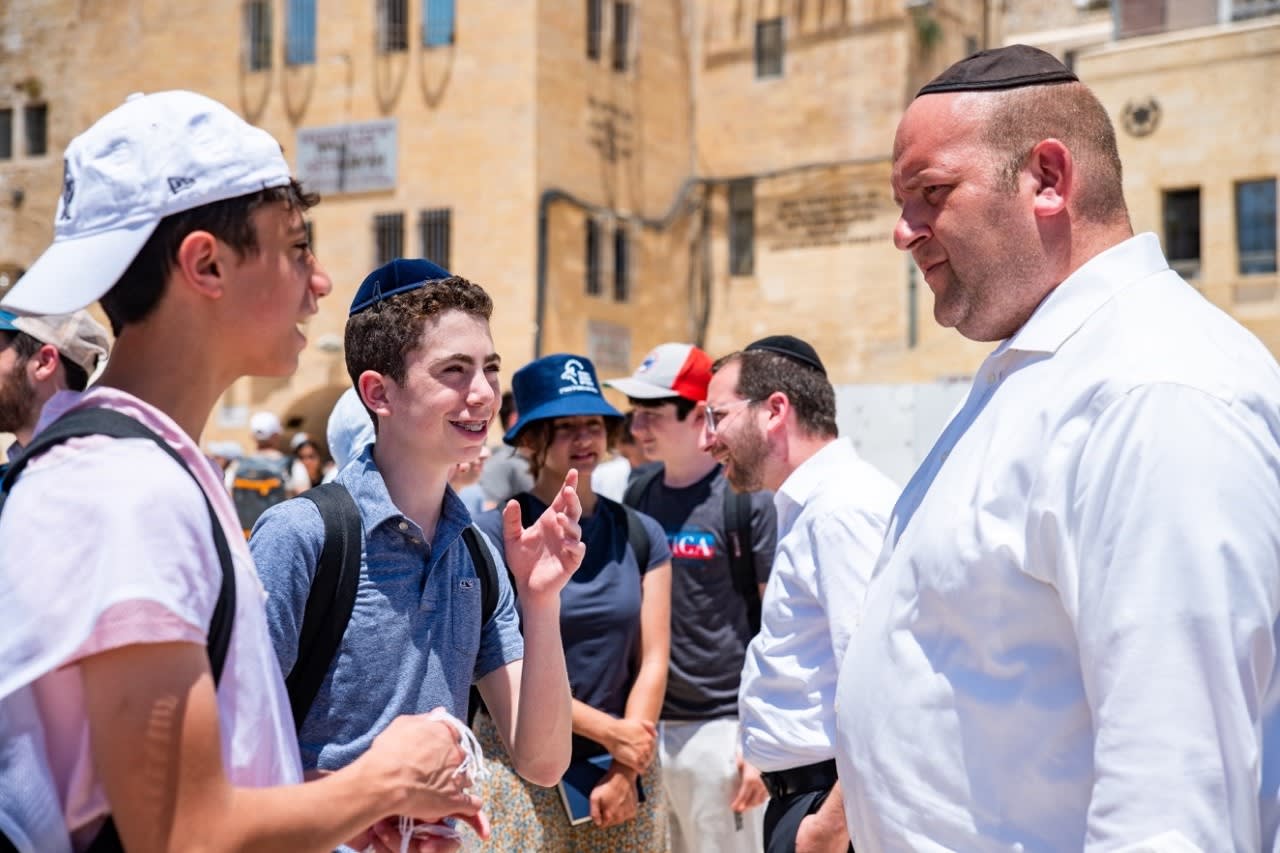
Jewish communal work is in Avromie Adler’s DNA.
“My mother worked the Sunday morning shift at Cleveland’s chevrah kadisha (society of Jewish people who prepare the deceased for burial) for years, and my father would take the shirt off his back for anyone who needed help in our community,” recalls Adler. “Watching my parents do these things with little fanfare made a deep impression on me.”
While Adler knew he’d engage in klal work, he didn’t know what shape it would take.
“When I moved to New York in my early 20s, I worked with different populations, including seniors and children in the Jewish foster care system,” he noted. “But the bulk of my career has been working with individuals with disabilities and their families.”
Adler worked at Mishkon, a Jewish social service agency based in Brooklyn, for 17 years before taking the reins as international director of Yachad in 2018. Yachad is a global organization that addresses the needs of Jewish individuals with disabilities and helps enhance their Jewish communal participation and connection to Judaism.
Though Adler was very well-versed in the world of disability care and administration, he doesn’t shy away from calling his role at Yachad a challenge.
“I came from a heavily regulated and government funded world, where the majority of services offered were residential,” Adler explained. “Yachad runs all kinds of services and programs on an international level.”
He continued, “It presented a new challenge for me that pushed me out of my comfort zone and afforded me greater creativity. At Yachad, I can also impact not only those with disabilities and their families, but also volunteers.”

Adler is referring to the hundreds of volunteers Yachad recruits from 8th grade, high school, college and beyond, who hold a variety of roles running programming and working as counselors with special-needs children, teens and adults.
“Watching volunteers grow up and grow as Jews being involved with chesed, and becoming leaders of our next generation, is deeply fulfilling,” said Adler.
Adler notes the significant number of senior staff members — involved with Yachad for decades – who started as high school volunteers. “It’s a beautiful thing that they grew up here in Yachad and forged lasting careers in this space,” he said. “Yachad has the best staff in the world.”
Aside from his pride in his team, Adler is particularly proud of REACH, a first-of-its-kind database of resources and referrals to help match families of those with disabilities to specific services; it also offers chizuk (emotional support).
“In ten months of operation, we’ve received close to 1,000 calls already and have given out 850 referrals,” noted Adler, who helped bring the idea for REACH to life. “I’m not on the ground as much as other Yachad staff, so it can take a stretch of time for me to see the difference we’re making in the community. When I do, it’s very rewarding.”

A top priority of Adler’s is to broaden Yachad’s tent under which more diverse Jewish volunteers can be recruited to work with the special-needs population.
“Historically, Yachad’s reputation is that we are for the traditional Modern Orthodox community, and that’s great,” he says, “but we have the ability to be an organization that can support the entire Jewish community, from Satmar to secular.”
Adler points to Ivdu schools and summer camp programs that are single gender, and Yachad’s ability to recruit Orthodox Jewish teens from all schools to be volunteers in those kinds of environments.
“Avromie’s vision for Yachad is to help as many people as we can,” reported Chani Herrmann, Yachad’s Associate Director. “His leadership over the past few years has been encouraging growth and engagement of a diverse group of Jews in our community who can benefit from the unique programs and services that Yachad has to offer.”
In the meantime, Adler remains proud of the strides made to embrace all people of all abilities in communal life.
“Yachad has been a huge part of fostering the integration of people with disabilities into Orthodox Jewish societal life,” says Adler. “I use the word integration and not inclusion, because integration implies a more natural synthesis where people are not seen as different and need a special dispensation to be included. It should be an obvious, natural course of action.”
The words of this author reflect his/her own opinions and do not necessarily represent the official position of the Orthodox Union.
